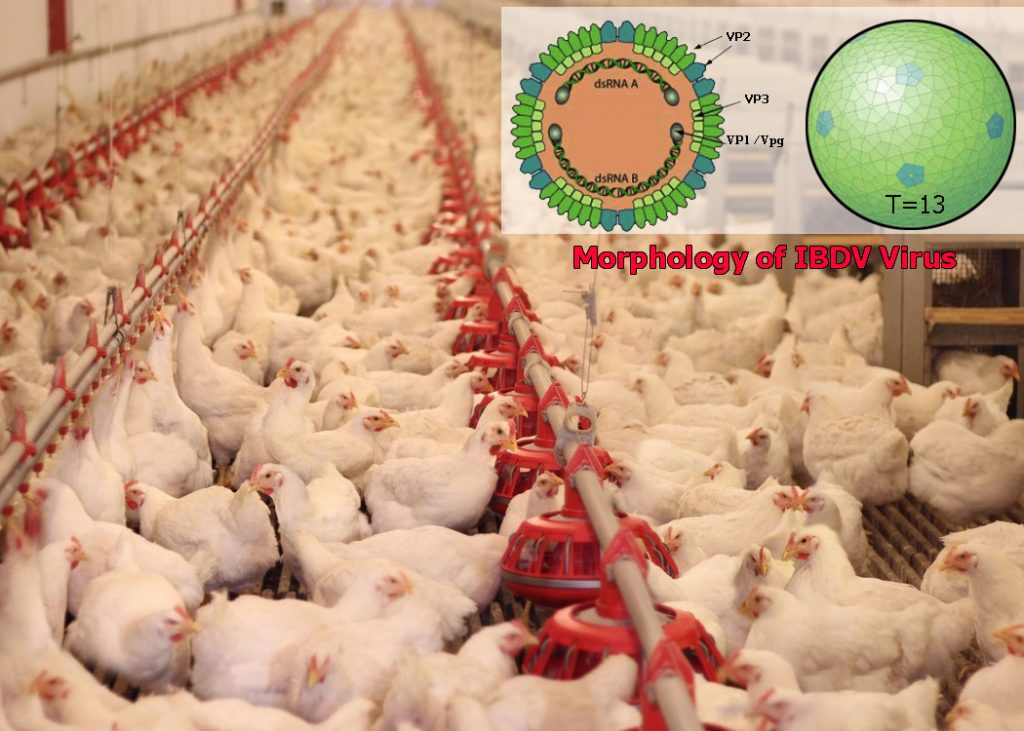
AVN Monitoring Desk
Controlling the Infectious Bursal Disease virus (IBDv) is critical to ensuring the long-term sustainability of the global poultry industry, say Keele University, UK, researchers in a study published in the journal Virology, calling for innovative strategies to address the disease, which severely compromises the immune systems of chickens.
The study investigated the circulation of IBDv strains in British poultry farms, providing insights into the virus’s evolving genetic makeup and its potential to adapt.
IBDv weakens chickens’ resistance to infections and diminishes their response to vaccines, making its management essential for both animal welfare and global food security.
As part of ongoing epidemiological surveillance, the researchers sequenced critical regions of the virus’s VP2 capsid and VP1 polymerase genes from 20 IBDv-positive bursal samples collected in 2020 and 2021. These samples were obtained from 16 commercial broiler farms across the UK, where chickens had been vaccinated with live IBDv strains at 17–22 days, with samples taken at 25–55 days.
The findings revealed that none of the sampled farms contained the very virulent (vv) strains of IBDv. However, one farm harboured a classical virulent strain, while two farms were found to carry vaccine strains. Additionally, reassortant strains combining a vv segment A with a non-vv segment from genogroup A3B1 were identified on five farms. Notably, eight farms showed co-infection involving genogroup A3B1 reassortant strains and vaccine strains. Overall, 81% of the farms (13 out of 16) were found to contain A3B1 reassortant viruses, highlighting the significant prevalence of these emerging strains.
The A3B1 genogroup, which has emerged globally in recent years, exhibits unique genetic variations and has spread rapidly across Europe, Asia, and Africa. The study’s findings highlight the virus’s ability to adapt and evolve, with co-infection raising concerns about the potential for vaccine-driven viral changes in the field.
“This work underscores the need for a multifaceted approach to IBDv control, incorporating genomic surveillance, vaccine efficiency studies, and immunological assessments to understand the impact of viral reassortment and antigenic drift,” said Dr Vishi Reddy of Keele University’s School of Life Sciences. He added that whole-genome sequencing could offer deeper insights into the virus’s evolution and inform improved disease control strategies.
Poultry accounted for 40pc of global meat production in 2021, totalling 133 million tonnes, and remained the most consumed meat by 2023. The Food and Agriculture Organisation (FAO) of the United Nations predicts meat production will rise by 50pc to 180 million tonnes by 2050, with poultry egg production already hitting 93 million tonnes in 2021. In the UK, the poultry industry contributes nearly £3.6 billion annually to the economy, producing around 2 million tonnes of meat.
The findings of the study underline the urgent need for coordinated international efforts to tackle IBDv and secure the future of a vital industry.





